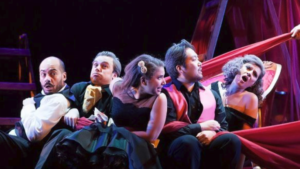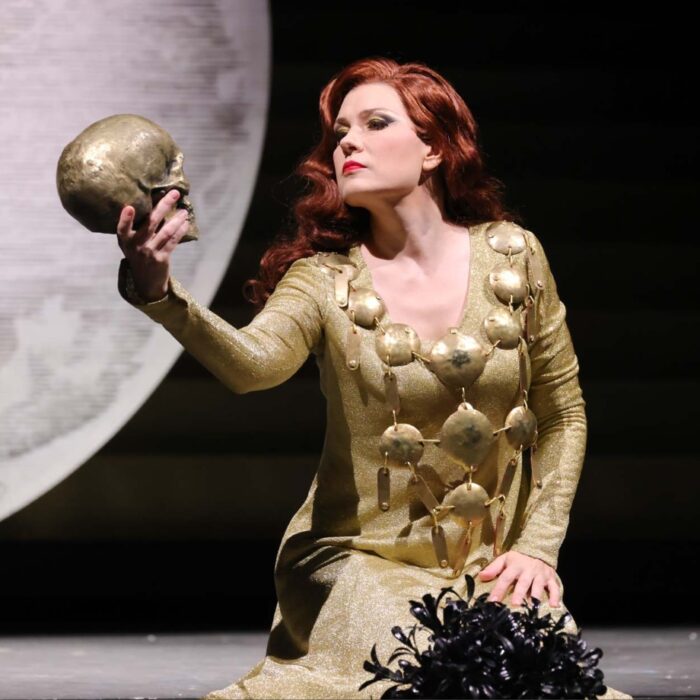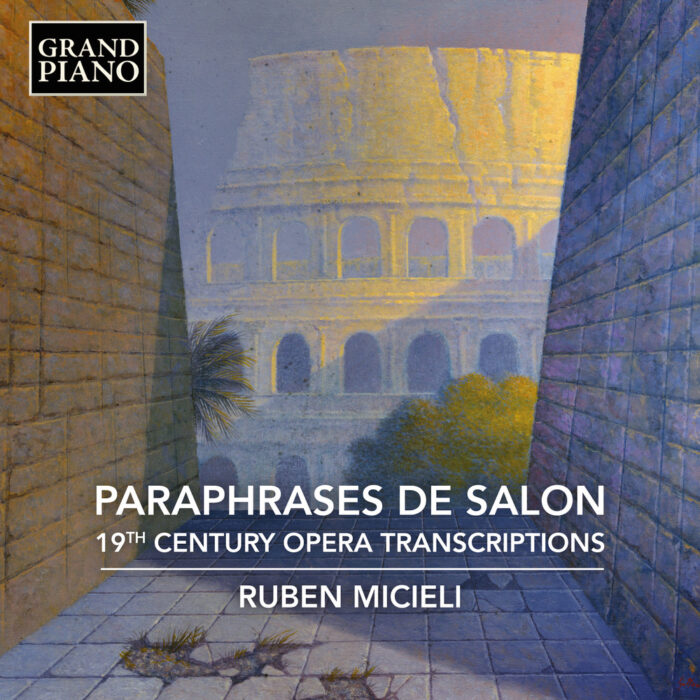
Wexford Festival Opera 2017 Review – La Scala di Seta: A Perfectly Entertaining, if Uneven, Performance
By Alan NeilsonWexford Festival Opera’s shortworks, performed during the afternoon at White’s, a local hotel, are small-scale productions of known and lesser-known works in a reduced format with piano accompaniment. The aim is to provide an opportunity for festival singers appearing in minor roles or the chorus to showcase their talents in more substantial roles. Of course, it also provides further opportunities for festival goers to enjoy more opera! Rossini’s one-act farsa “La Scala di Seta” was one of the operas selected for this year’s festival, and seemed particularly well-suited for such treatment, being a fairly short work to begin with, and requiring only a small cast, yet with each role having ample singing opportunities.
Rossini wrote “La Scala di Seta” for the Teatro San Moise in Venice in 1812 during a particularly productive period in which he wrote six operas for the theatre over a three-year period. The plot is typical of the farsa comica genre: Dorvil is secretly married to Guilia unbeknown to her guardian, Dormont, and her suitor, Blansac. Guilia, realizing her cousin Lucilla is in love with Blansac, enlists the help of her servant Germano to solve the problem by having Lucilla marry Blansac. Obviously, her plot does not run smoothly, and general hilarity ensues before all end happily.
Achieving a Lot With a Little
The stage is a small raised platform at the back of the room, with a piano on one side of the stage. The set was designed by Luca Dalbosco, which comprised of various props, including a few ladders, a chaise-longe, a small table with various objects, a curtain behind which people can hide, and plenty of red cloth, which was again used to hide people or to act as a silken ladder. The performance space was, therefore, fairly restricted and did not allow too much space for movement. Yet, this proved to be no handicap for the American director Nathan Troup, who used the deliberately confusing space to promote the feelings of surprise and misunderstanding. He also shifted the scene to a theatre, so that Giulia becomes a famous singer, Dormont her manager and so on. It was a splendid idea, and the ending was especially well-crafted, provoking much laughter, as the put-upon Germano ushers the rest of the cast onto a stage behind the curtain to take their bows, while he remains in front of the curtain to take the applause of the real audience. In fact, Troup can be very pleased by the degree to which he really managed to draw out the humor from the work. There have been many productions of “La Scala di Seta,” in major opera houses, with far greater resources at the director’s disposal, which have achieved far less.
Solid But Not Inspiring
The cast put in solid, if uninspiring, performances, proving how difficult it is to sing Rossini to a high level. Of course, this was made more difficult by having no orchestra to mask their performances. The voices stand exposed, every error or misjudgment laid bare. Moreover, the piano on its own can only do so much, a greater burden thus falls upon the singer. The one exception to the above comments being the baritone, Filippo Fontana, as Germano. The previous evening he was performing as Roberto in Foroni’s “Margherita,” yet managed to put in a fresh, energetic, and wonderfully well-acted and humorous performance as Germano. Moreover, he confirmed his credentials as a singer with a great deal of talent. He has a wonderfully expressive and flexible voice with a warm tone.
Giulia was parted by the Bulgarian soprano Galina Bakalova. Her voice is strong, but with a sharp edge to it. She managed the role well, but was unable infect her performance with the necessary lightness and flexibility to really convince in the role.
The Italian mezzo Cecilia Gaetani proved to be an endearing Lucilla, acting out the part with a great deal of zest and ability. She sang well, if a little unevenly at times.
Chase Hopkins, an American tenor, played the part of Dormont, producing a thoughtful and disciplined performance.
In the role of Dorvil was the South Korean tenor, Ji Hyun Kim. He put in a good performance, but did seem to force his voice at times.
There was much to admire in Nicholas Morton presentation of Blansac. He has a clear sounding baritone and sang well, but overall lacked the sparkle that one would expect in the role.
Scintillating Piano
The cast was supported by the scintillating piano playing of the music director, Tina Chang, who really brought out the liveliness and humour in Rossini’s score, so much so that she made one forget about the exciting racing strings and wonderful textures of the woodwind sections that characterise “La Scala di Seta.”
Taken on its own terms, this abridged version of “La Scala di Seta” was very entertaining, and the perfect way for festival goers to spend an hour or so in the afternoon.


